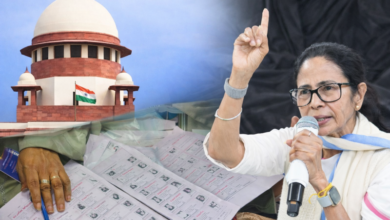
News Mania Desk/ Agnibeena Ghosh/19th June 2024
The Madras High Court recently clarified that a live-in relationship between a married man and an unmarried woman does not constitute a relationship “in the nature of marriage,” thus denying any marital rights to the parties involved. The court stressed that without codified law, a live-in partner cannot claim succession or inheritance rights to the property of the other party.
Justice RMT Teekaa Raman denied relief to Jayachandran, a man involved in a live-in relationship while still married. The court explained that for a relationship to be recognized as akin to marriage, the couple must publicly present themselves as spouses, cohabit voluntarily, be of legal age to marry, and be otherwise eligible to marry. Since Jayachandran was legally married during his relationship with Margarette Arulmozhi, their arrangement could not be considered a relationship in the nature of marriage.
The court stated, “Where a man and a woman are proved to have lived together as husband and wife, the law presumes that they are living together in consequence of a valid marriage will not apply and hence, the relationship between the appellant and Arulmozhi (now deceased) was not a relationship in the nature of a marriage and the status of the said person is that of a concubine. A ‘concubine’ cannot maintain a relationship in the ‘nature of marriage’ because such a relationship will not have exclusivity and will not be monogamous in character and consequently he cannot enter into a relationship in the nature of a marriage.”
The case originated from an appeal by Jayachandran, who had a live-in relationship with Margarette while still married to his first wife, Stella, with whom he had five children. Jayachandran had previously executed a settlement deed in favor of Margarette but revoked it after her death, leading to a dispute over property ownership.
The trial court had ruled that since Jayachandran and Margarette did not convert their relationship into a valid marriage, Margarette’s father, Yesuranthinam, was entitled to the property title. Jayachandran was ordered to surrender possession of the property, prompting his appeal.
In his appeal, Jayachandran argued that he had divorced Stella through customary means before his relationship with Margarette and had executed the settlement deed to ensure Margarette’s security. He also contended that the trial court overlooked Margarette’s designation of him as her spouse in her service records, which included pensionary and other benefits.
Jayachandran further asserted that following Margarette’s death, he should be recognized as her husband, claiming that the trial court erred by categorizing their relationship as merely a live-in arrangement.
The court noted that unlike the Hindu Marriage Act, the Indian Divorce Act did not recognize customary divorce practices or caste distinctions. Therefore, without proof of a customary divorce, the court could not accept Jayachandran’s claim of having divorced Stella.
The court emphasized that under the Indian Christian Marriage Act, monogamy principles applied, confirming the existence of Jayachandran’s first marriage to Stella. Regarding Jayachandran being nominated as Margarette’s beneficiary in service records, the court clarified that such nominations were self-declarations and did not confer legal heir status upon him.
Consequently, the court affirmed that the absence of codified law meant a live-in partner like Jayachandran could not claim succession or inheritance rights. Upholding the trial court’s ruling, the Madras High Court dismissed Jayachandran’s appeal, reinforcing the legal distinction between marriage and live-in relationships involving married individuals.






